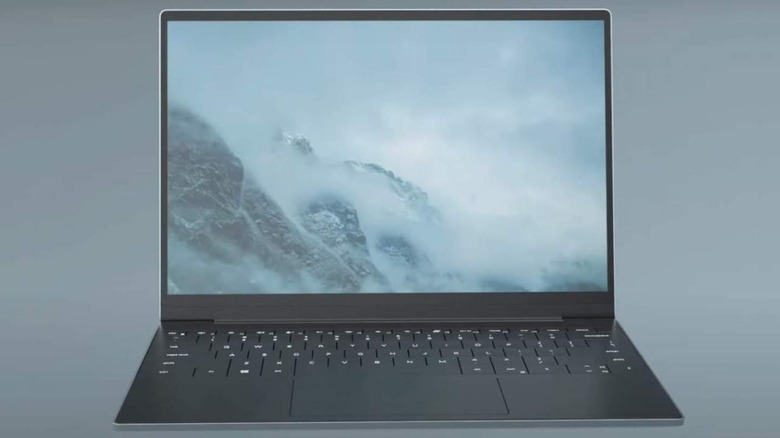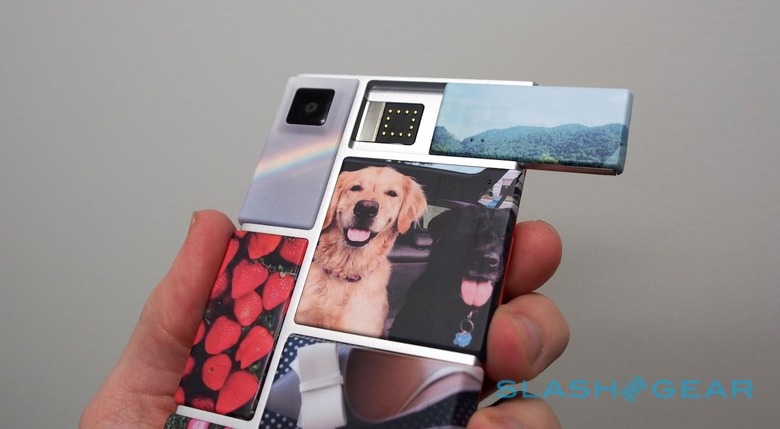Dell Concept Luna Showcases The Future Of Sustainable Laptop Design
Dell has introduced Concept Luna, a proof-of-concept laptop designed with sustainability in mind. Though the model won't be made available to consumers, the work put into this device demonstrates ways manufacturers can approach laptop design in the future, reducing their products' impact on the environment by embracing the circular economy, improved repairability, and more.
Electronic waste has a major impact on the environment due in part to the toxic chemicals it releases into the atmosphere and groundwater (via Elytus). Recycling plays a major role in reducing e-waste by harvesting and, when possible, reusing elements for new devices. However, recycling is only one aspect of reducing environmental impact, with green efforts emphasizing the need for reuse and longevity before recycling.
Many electronics are disposed of because they end up damaged in such a way that repair would be too costly or burdensome. Consumers may discard an otherwise perfectly fine device if, for example, the price of repairing it may be close to that of purchasing an entirely new unit. This issue can be addressed by designing products with future repair needs in mind, among other things.
Dell addresses these concerns with Concept Luna, a laptop designed to reduce the carbon impact of its components, make future repairs easier, improve efficiency in order to reduce energy usage, cut down on the amount of scrap metal that results from building the chassis, and make it easier to recycle the printed circuit boards powering the machine.
"Concept Luna is a strong example of how we are exploring new ways to dramatically accelerate progress against our goals," Dell's Chief Technology Officer for Client Solutions Group Glen Robson explained in a blog post detailing the project.
Robson points to Dell's existing commitments regarding the future of its environmental impact, including a goal to reach net-zero greenhouse gas emissions and support the circular economy. Part of the company's effort involves what it calls circular design, which takes into account a product's full lifespan all the way through to when it is eventually recycled. Dell says it aims to design products where every component can be either recycled or reused.

Dell collaborated with Intel on its Concept Luna proof of concept, which it says was "created to test what could be possible, not to be manufactured and sold." The resulting design includes some major changes compared to commercial laptops, including a motherboard size reduced by around 75-percent that cuts the component's carbon footprint by around 50-percent.
As part of the design, Robson says Dell's Concept Luna team "completely reconsidered the layout of all internal components," paving the way for improved heat distribution, efficiency, and ease-of-repair. The concept uses only four screws, which greatly speeds up the rate at which the laptop can be serviced, plus the design makes it easier to repair components that often wear out or become damaged, including the screen and palm rest.

The question remains, of course, whether such innovations will ever make their way to consumer products to a significant degree. The idea of producing more sustainable, repairable, and environmentally-friendly gadgets isn't new, but many past projects haven't proven successful.
There was, for example, Google's Project Ara, a modular smartphone that would allow consumers to selectively upgrade and repair components designed as standalone modules. Design struggles plagued the device, however, and it was eventually abandoned. Other less-adaptable but still modular phone concepts faded away with little interest from the public.
That's not to say there's no future for more sustainable designs, however, and the growing pressure to address climate change will no doubt fuel innovation. Some companies have seen success with more environmentally-friendly design philosophies, particularly Fairphone, which is designed in such a way that all of the components can easily be accessed and repaired.
